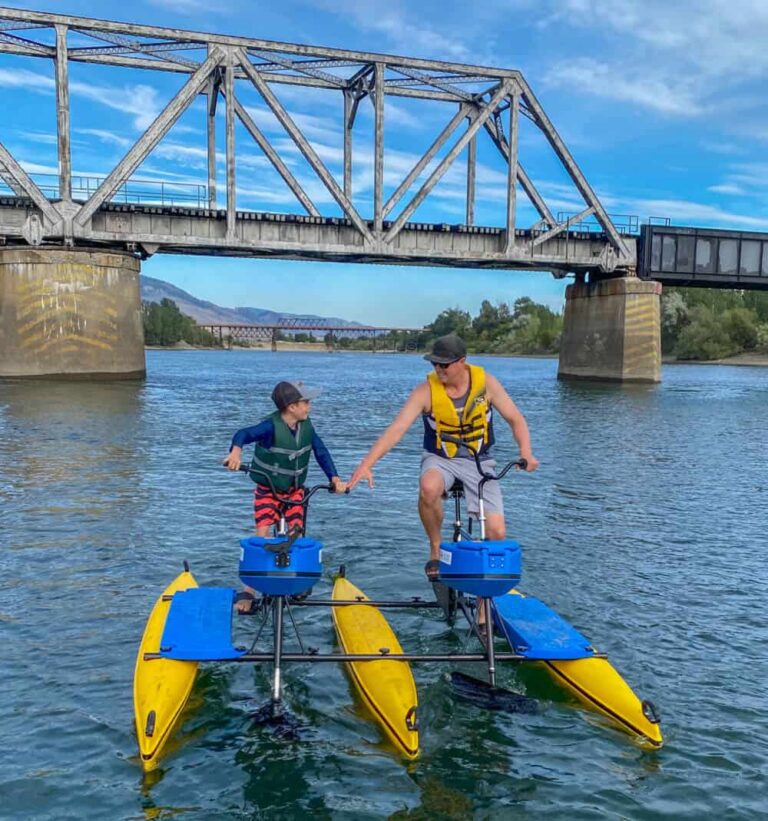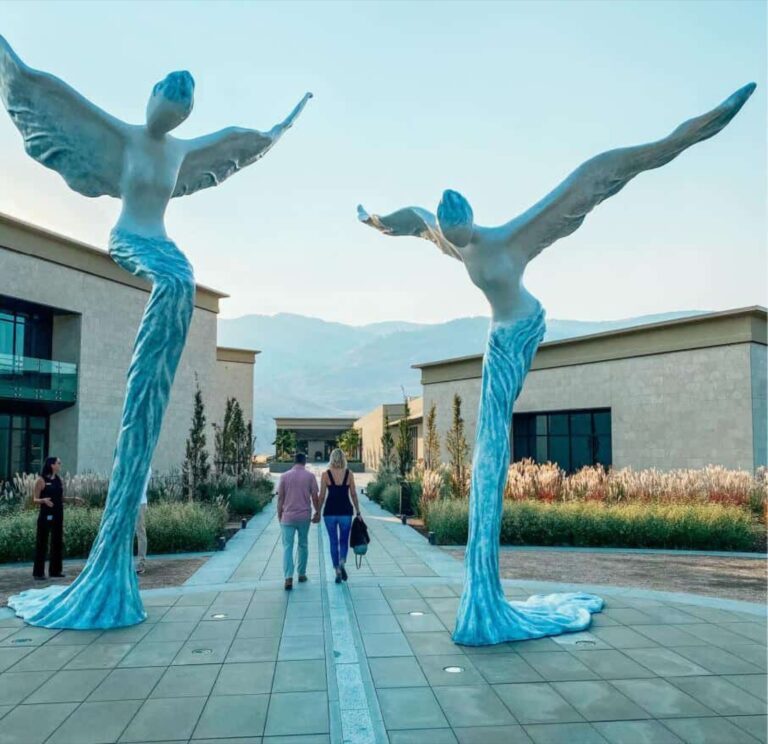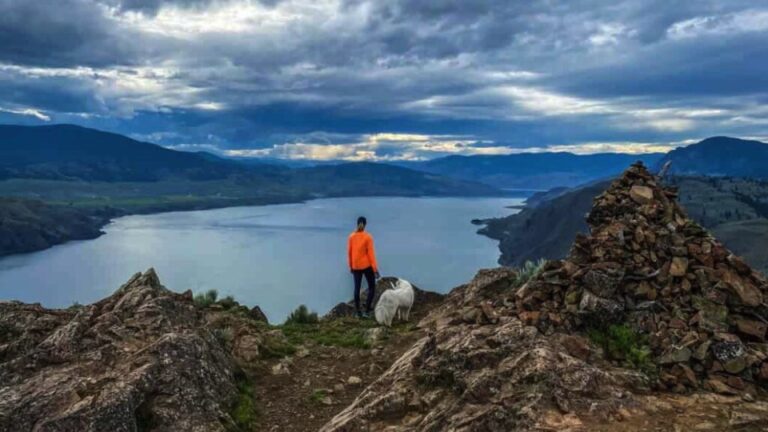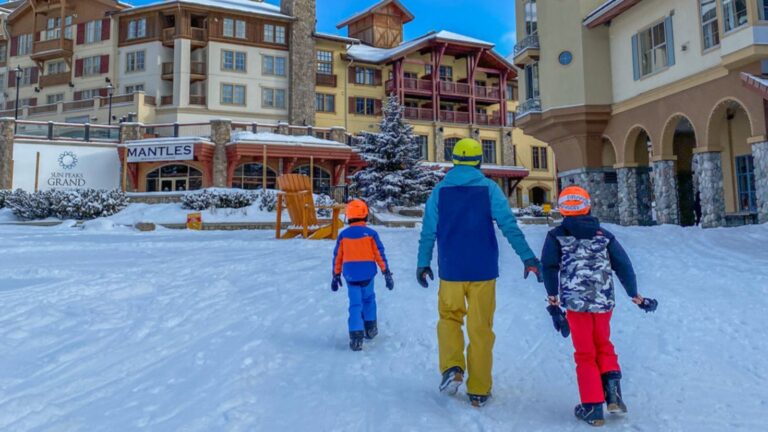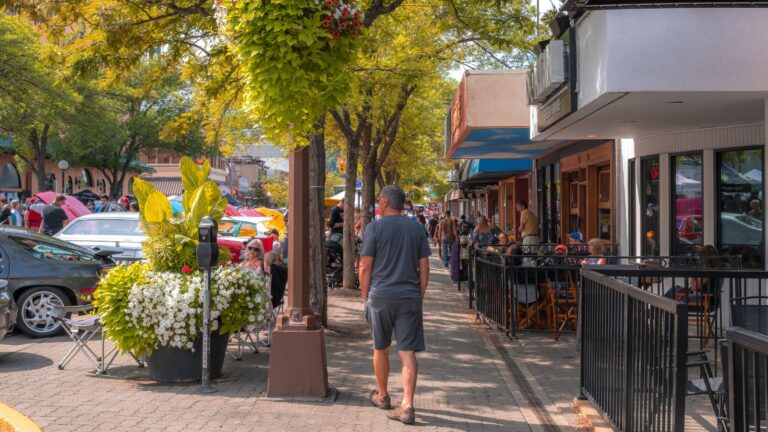As airfare rises and border politics intensify, more travelers are looking north and staying north for vacation experiences that rival some of the world’s most iconic destinations.
Across Canada, an increasing number of domestic tourists are opting to explore their own provinces rather than crossing into the United States. Tariff tensions, rising costs, and political unease have cast a shadow over cross-border travel.
And while the number of Americans visiting Canada fell 8.9% from the previous year, according to Statistics Canada, more than one million U.S. residents still crossed the border in April 2024 alone.
Drawn by a favorable exchange rate, cooler summer temperatures, and Canada’s reputation for stability, safety, and space, they’re trading beach resorts and big cities for something quieter, and in many ways, more captivating.
One of the regions delivering on that promise is British Columbia’s Cariboo Chilcotin Coast. Stretching from the Pacific Ocean to the Cariboo Mountains, this remote expanse of British Columbia holds glacier-fed lakes, gravel trails, old-growth forests, and a coastline dotted with fjords.
It’s a place where five vastly different landscapes, each echoing a popular international destination, can be explored, essentially a highlight reel of global adventure without the jet lag.
Here are five travel “dupes” that prove this corner of B.C. might just be Canada’s best-kept summer secret.
Dupe for the Alps: Hut-to-Hut Hiking by Floatplane
Instead of trekking through the Dolomites or French Alps, step into the alpine silence of B.C.’s backcountry by floatplane. Known unofficially as the “flightseeing capital of British Columbia,” this region offers access to remote high-country terrain, where the only crowds are the mule deer and marmots sharing the ridgelines.
New for 2024, Nuk Tessli Wilderness Resort has introduced a hut-to-hut experience in the Itcha Ilgachuz mountains. Guests fly into the main lodge, then traverse a trail network between wilderness cabins tucked into subalpine basins. On the final day, a floatplane swoops in to carry hikers back out over the lakes and peaks they’ve just crossed. It’s alpine isolation, elevated.
Dupe for an African Safari: Spirit Bears in the Great Bear Rainforest
The Great Bear Rainforest, home to fjords, salmon streams, and moss-draped trees, is the largest intact coastal temperate rainforest on Earth. While it may not conjure the image of an African savanna, it delivers the same kind of awe.
Grizzlies gather along the rivers in Bella Coola each fall, drawn by the salmon run. And if luck is on your side, you might spot a Kermode bear, or spirit bear—a white-furred genetic variant of the black bear found only in this part of the world. Eco-tours led by Indigenous guides offer the rare chance to observe these animals in their natural habitat, all while sharing stories that have shaped the land for millennia.
Here, misty fjords, salmon-filled rivers, and old-growth cedars set the stage for some of Canada’s most iconic wildlife viewing.
Dupe for Mountain Biking in Colorado: Wild Trails in Williams Lake
Some of the best singletrack on the continent is not in Colorado, but in Williams Lake, B.C., considered by many to be the mountain biking capital of Canada. Riders will find an ever-evolving patchwork of singletrack, cross-country, and enduro trails that wind through the hills surrounding town, many of them hand-built and unmarked. Spend a week here and you’ll barely scratch the surface.
Prefer drop bars to dirt jumps? Gravel cycling is booming along the region’s Gold Rush Trail. In Clinton, Tutti Gravel Inn caters specifically to cyclists, offering bike tools, gear rentals, and trail support from the owners themselves. Cold drinks on the trail? They’ll bring them.
Dupe for Sportfishing in Mexico: B.C.’s “Fishing Highway”
Skip the charter boat in Cabo. Highway 24, known locally as B.C.’s B.C.’s Fishing Highway, stretches just 97 kilometres but opens access to more than 100 pristine lakes. Rainbow trout rise with the mist, and the only sounds most mornings are a line cast cleanly into still water and the rustle of loons in the reeds.
Anglers come here to unplug. Generations return each summer to fish, camp, and sit around fires that burn long after the sun dips behind the trees. Accommodations range from rustic resorts to glamping sites, but the experience is the same: quiet, wild, and grounded in rhythm rather than schedule.
Dupe for a Western Dude Ranch: Ride, Ranch, and Unplug in B.C.’s Cowboy Country
For a taste of the Western frontier without heading to Wyoming or Montana, the ranchlands of British Columbia deliver wide skies, horses under saddle, and star-filled nights.
Just outside Clinton, Echo Valley Ranch & Spa offers trail rides, fly fishing, and wellness programs in a Thai-influenced timber lodge (yes, there’s a spa designed by a Thai architect). A yoga pavilion overlooks the Fraser Canyon, while the stables sit steps away from open pasture.
Further afield, Siwash Lake Wilderness Resort hosts horseback safaris on 10,000 private acres. Guests ride through meadows and forests by day and sleep in solar-powered cabins by night. What both properties share is a commitment to sustainability and a style of hospitality that prizes freedom and space over spectacle.
Why the “Dupe” Works
As global uncertainty complicates international travel plans, regions like the Cariboo Chilcotin Coast offer something more grounded: time in nature, room to roam, and experiences that feel both raw and intentional.
For Canadians, it’s a chance to rediscover what has always been there. For Americans, it’s a quieter, more connected version of the West. And for everyone else, it’s a reminder that you don’t always have to cross an ocean to find the kind of place that changes how you see the world.
